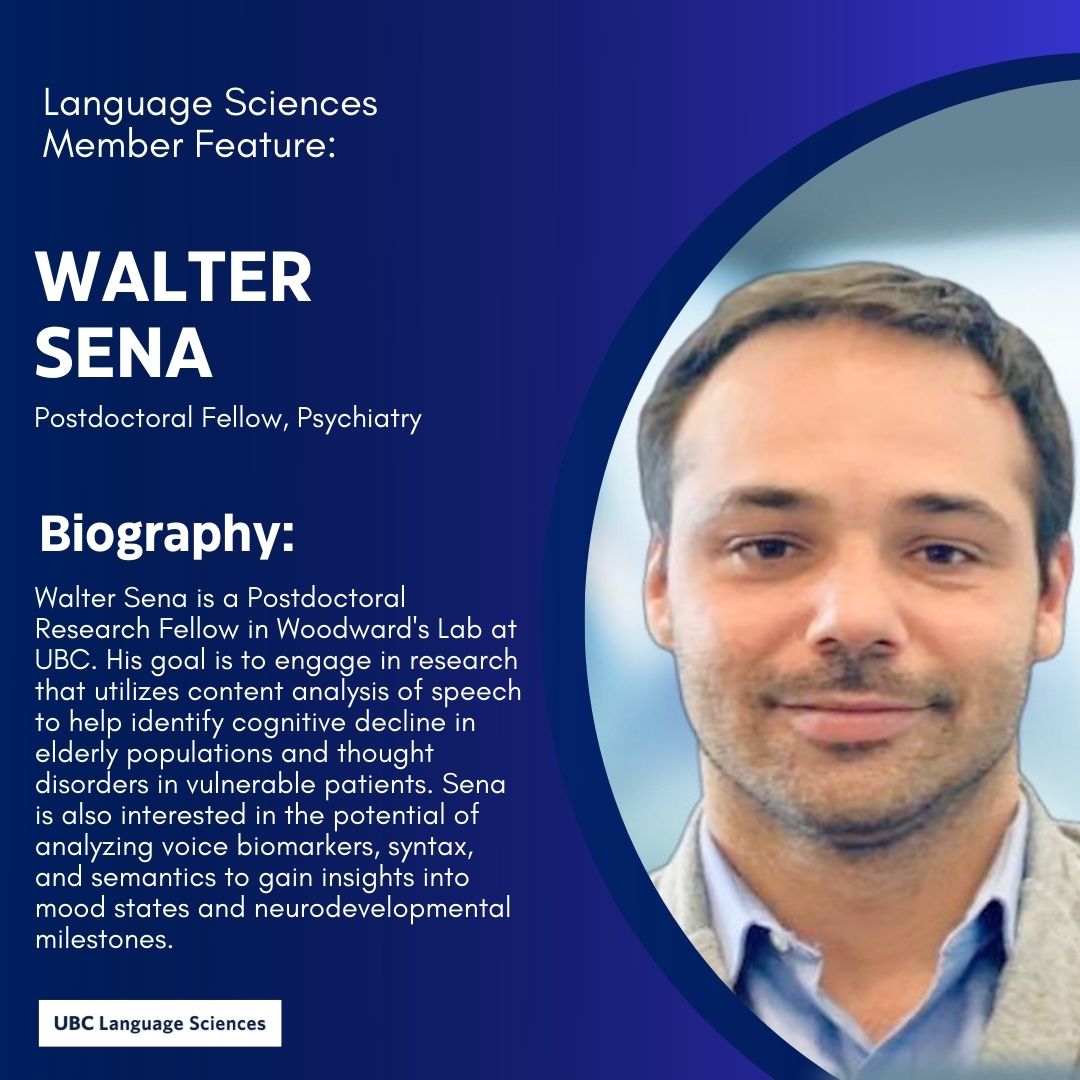Walter Sena is a postdoctoral fellow in the Department of Psychiatry at the University of British Columbia. His goal is to engage in research that utilizes content analysis of speech to help identify cognitive decline in elderly populations and thought disorders in vulnerable patients. Sena is also interested in the potential of analyzing voice biomarkers, syntax, and semantics to gain insights into mood states and neurodevelopmental milestones.
Learn more about what inspires Sena's research and work in this Language Sciences Member Spotlight!
What does your research in Psychiatry focus on?
My research in Psychiatry is centered around neurocognition, focusing on achieving objective measurements for cognitive functions such as attention, memory, language, and reasoning. This area differs from the subjective experiences prevalent in conditions like depression and anxiety, as neurocognition is rooted in understanding the neural correlates of cognitive functions, offering a quantifiable dimension to psychiatric research.
How does your research intersect with Language Sciences?
Language expression is our primary means of sharing thoughts, transforming them into speech, writing, or other forms. However, flawless language use doesn't necessarily equate to logical reasoning. My research intersects with Language Sciences in examining how language expression and patterns can signal reasoning alterations. This approach is crucial for creating a standardized method to examine human thoughts, potentially leading to probabilistic prediction tools for a range of conditions.
What's a project you've worked on within the last few years that you're particularly proud of?
A recent highlight in my career is the development of a web-based neurocognitive assessment tool. This tool, if fully implemented, would enhance the efficiency and accuracy of monitoring various cognitive conditions, from early childhood development to late adulthood resilience.
What inspires you to pursue your line of research?
The potential to substantially improve people's lives worldwide is what drives my research. As a clinician, I undoubtedly believe that saving one life is akin to saving the entire world. However, the prospect of conducting research with meaningful clinical applications allows us to indeed expand our commitment to everyone in the world.
If you had to choose a different career path, what would you be interested in pursuing?
If I were to pursue a different career, I would be drawn to biomedical engineering. My fascination with information processing aligns closely with this field, complementing my current work in cognitive neuropsychiatry. It offers exciting opportunities in real-world applications like neuromodulation, a significant focus in my mentor Dr. Todd Woodward's lab.
